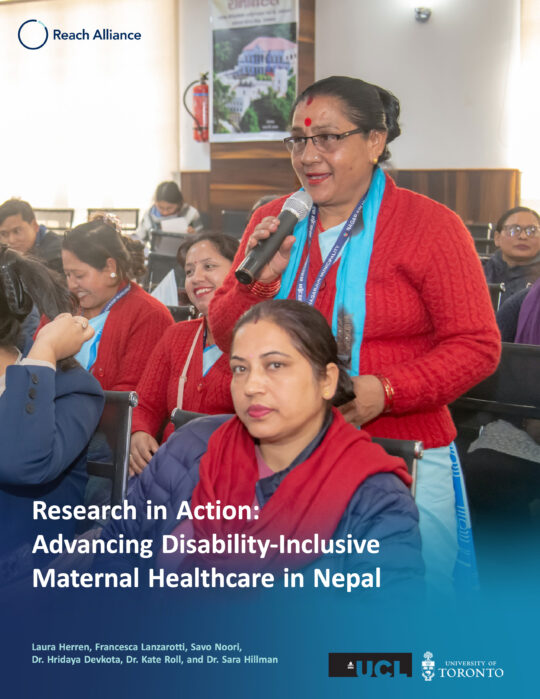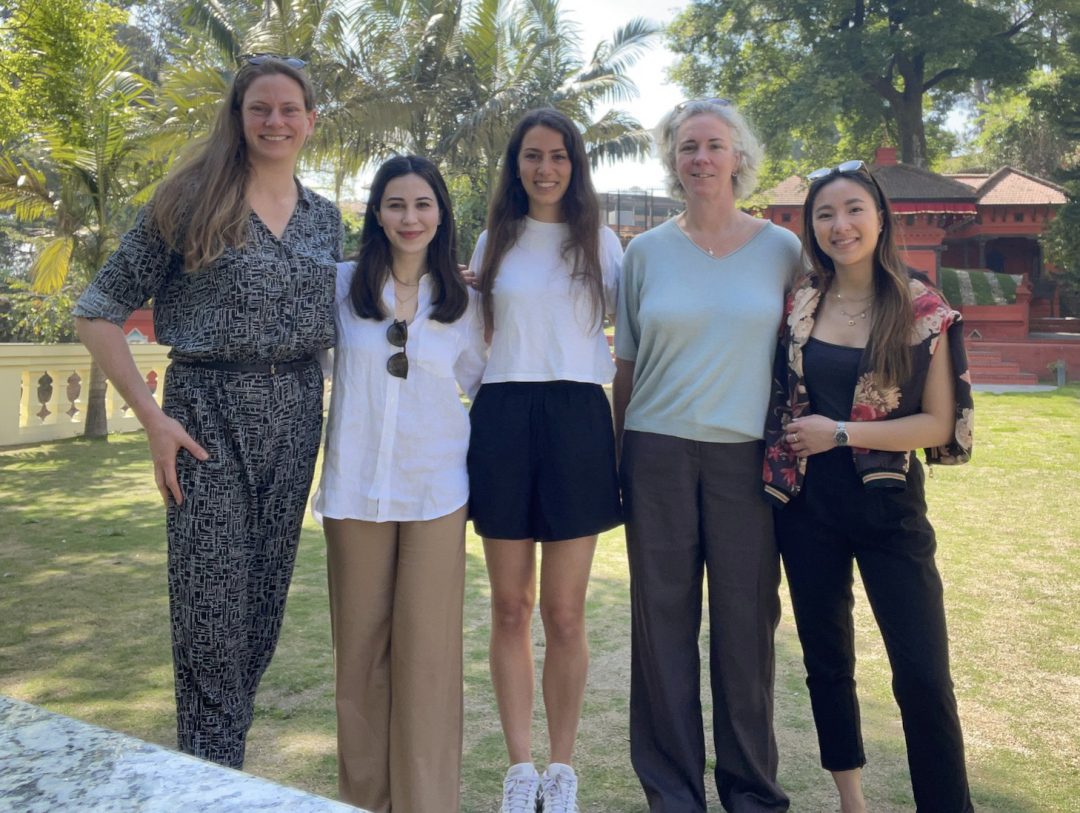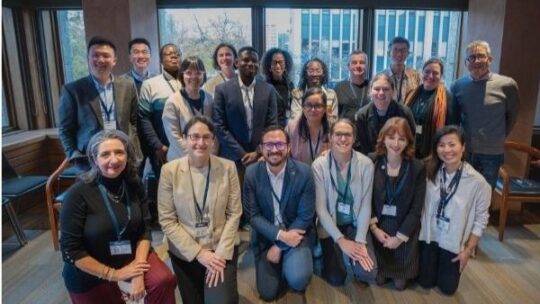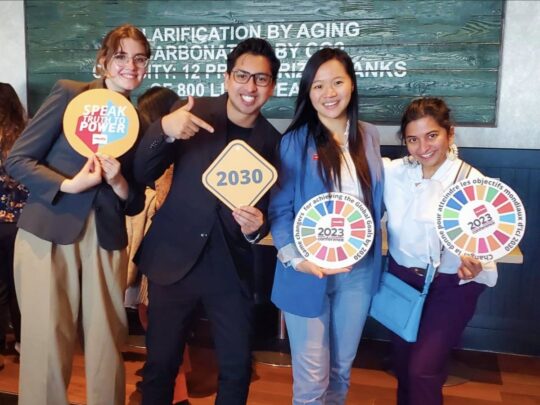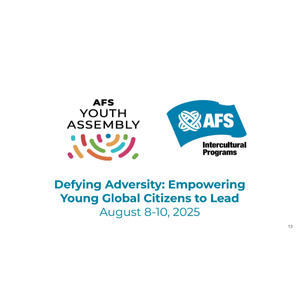The right of women with disabilities to make autonomous choices during pregnancy should be the same as that of women without disabilities. However, in low-income countries such as Nepal, access to healthcare and choices during the pregnancy journey are often limited, increasing women’s risk of neglect, non-consensual care, and obstetric violence. Globally, the intersection of disability, pregnancy, and caste is an understudied field. Recently there were changes to the Nepali constitution that affect healthcare provision and it is important to explore the impact of these changes on already vulnerable groups in society. The Reach Alliance caught up with University College London Reach researchers Laura Herren, Francesca Lanzarotti and Savo Noor to learn more about their team, case study topic and their recent travels to conduct field research in Nepal.
Laura, as a Public Policy and Innovation master’s student, what is the relevance of designing innovative policies within the context of your case study?
Large-scale reforms to governance structures (such as the changes brought on by the federalization of Nepal with the 2015 constitution) often result in population groups who are worse off or left behind. This is not a phenomenon specific to our case study, but one that is important to explore.
To reach disadvantaged groups with public health services, countries require innovative policies designed specifically for these groups. However, designing innovative policies that meet the needs of the population – including vulnerable and marginalized communities – requires a thorough review of existing policies and where they fall short in their design or implementation. This analysis is what we are contributing by doing this research and writing the final report.
Francesca, you are currently completing your Master of Science in Women’s Health at UCL. How does Reach and your case study align with your academic and professional goals?
Our case study aligns with the Women’s Health MSc by touching on the different pillars of the course; the physical, mental, social, legal and ethical aspects of women’s health. The case study also uses qualitative research methods like interviews with the women to amplify their voices which have previously been marginalized. Hearing the women’s stories has demonstrated the importance of generating knowledge from the source. The qualitative approach also contributes to Reach’s mission of reaching the hardly reached, as these women are physically, geographically and socially marginalized from mainstream society. Reach’s mission statement underlies the basis of our project and is a philosophy our team plans to carry through in our future professional pursuits.
Savo, as a junior resident doctor and Reproductive Medicine and Women’s Health student at UCL, what contributions do you hope your case study will have on global health and the UN SDGs?
Our study highlights the challenges that women with disabilities face in accessing maternal and reproductive health services and highlights the need for inclusive policies and programs that address their unique needs. By focusing on experiences of pregnant women with disabilities, we hope this study fills critical gaps in knowledge and raises awareness of the need to address this issue not only in Nepal, but globally. I hope this study draws attention to the importance of increased training of healthcare professionals on how to care for the needs of pregnant women with disabilities. This will hopefully help to provide all women with disabilities access to quality healthcare services and informed decisions about their reproductive health, contributing to SDG 3, 5 and 10.
Your team recently traveled to Nepal to conduct the field research portion for your case study report. Can you share what that experience was like?
Our experience in Nepal has been thought-provoking, eye-opening, and humbling. We were there for two weeks with our faculty mentors and an excellent local research team, during which time we designed and reviewed interview guides, recruited participants, and conducted in-person interviews in rural areas of Kathmandu. It’s been a fast-paced learning experience where we had to adapt to field work in a cross-cultural environment. By conducting these interviews and learning in person about the experiences and perspectives of participants, we learnt much more than we could have by doing a remote literature review. Moreover, we were able to immerse ourselves in the rich and diverse culture of Nepal to create a more holistic understanding of our research. We are excited to have completed our fieldwork, begin data analysis, and hope to reach policy makers in Nepal to better inform them of the reality and difficulties faced by the women when accessing and receiving healthcare.
